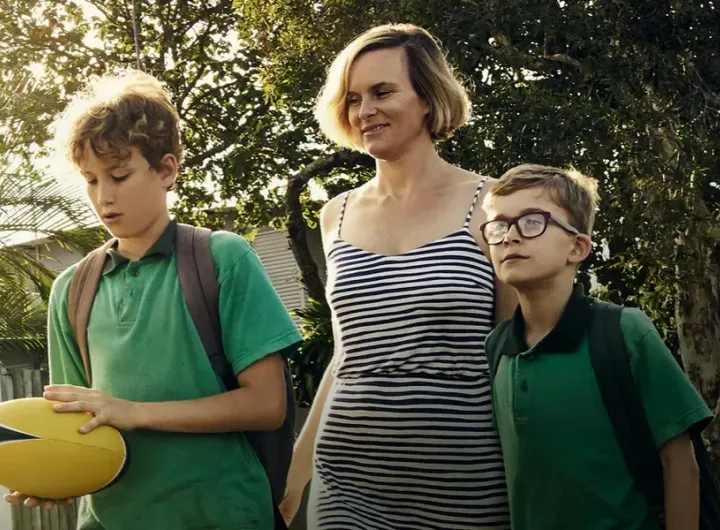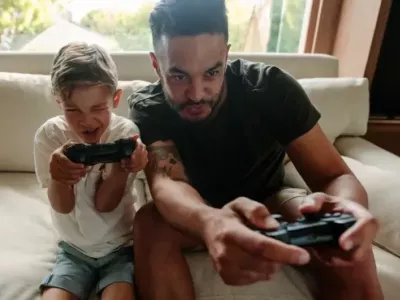Beating The Back-to-school Blues: How To Successfully Navigate The New School Year

As school holidays draw to a close, parents and carers across Australia start to focus on navigating the return back to school. While this transition period can be stressful and daunting for children and teens, the Triple P - Positive Parenting Program is a great resource for tips on how to successfully manage the challenges ahead.
Triple P International Country Director, Carol Markie-Dadds, says that many families will be feeling the impact of Covid, natural disasters, and the cost-of-living crisis, so will have mixed emotions around the year ahead and how to best prepare their children.
“For some, there’s the added challenge of ‘school refusal’, which pre-pandemic, occurred in 1 to 5 per cent of all school children – anecdotally this is now likely to be much higher,” Ms Markie-Dadds said.
“What we can control as parents and carers, however, is how we respond to life’s challenges. Staying calm in the face of adversity and promoting a sense of optimism in our children will help them respond positively to change, no matter what the future holds,” she said.
“The back-to-school period can also see children (and parents/carers) feeling uncertain or anxious around new teachers, friendships groups or even an entirely new environment.”
“Families can prepare for this by being armed with simple strategies to help children return to school with confidence and enthusiasm,” she said.
Triple P’s top tips for a stress-free transition to school
Plan new routines in advance
- The shift back-to-school means earlier wake-up times and longer, busier days for the entire family. Plan for this by getting everyone into a routine in advance, including adjusting kids’ nighttime routines in the week before school goes back.
- Save time and stress in the morning by prepping lunches or snacks the night before and leave time to unwind in the first few weeks back – don’t overcommit to activities.
- Involve kids in making decisions about their new routine to help them feel less stressed. This improves their coping skills. For example, something as simple as letting them pick their lunches for the week will give them a sense of ownership and enthusiasm.
Help build positive relationships
- Encourage positive relationships and pro-social skills to ensure kids feel confident and comfortable socially.
- Organise play dates before school starts as this is a great way to build friendships.
- Role-play difficult situations so that kids feel armed with problem-solving skills if challenges arise.
Encourage open and honest communication
- Acknowledge how your child is feeling if they are worried about going back to school and encourage them to talk openly about what is worrying them, so they can work through how to tackle these challenges and build resilience.
- Try to be positive when talking about going back to school - a positive approach helps children face the future with optimism, not fear.
- Encourage your child to talk about what they are looking forward to about going to school. Show that you are listening and be open to giving an open and honest response.
- Have these types of conversations on a walk or in the car to make them feel less daunting.
- If stress and anxiety are affecting your child’s ability to enjoy day-to-day life, seek help through teachers, your GP, or an evidence-based program like Fear-Less Triple P Online (for children aged 6+ who experience anxiety).
“We encourage families to re-establish bedtime and morning routines ahead of the new school year, and to spend quality family time together. The ultimate sense of security for children is based on knowing they are loved and valued. Showing this through your kind words and actions will put them in good stead for 2023,” Ms Markie Dadds said.
“Remember, children copy their parent’s behaviour, so practising kindness and empathy as traits of a healthy friendship will help your child develop their social skills while at school this year. A good balance between school and social time will also help kids exercise these skills and set them up for success.”
Delivery of the Triple P – Positive Parenting Program to parents and carers of children in Australia is supported by funding from the Australian Government Department of Health and Aged Care under the Parenting Education and Support Program.

